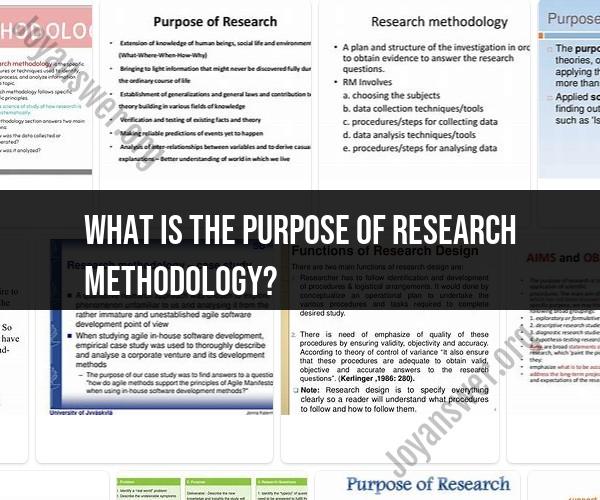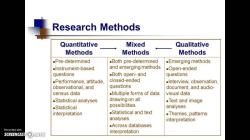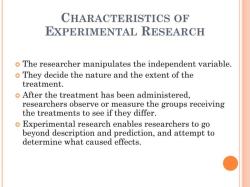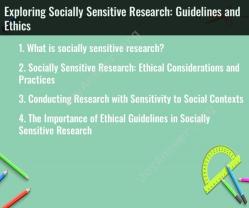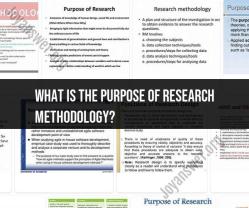What is the purpose of research methodology?
Research methodology serves several significant purposes in the research process:
Framework for Research: It provides a systematic framework and structure for conducting research. It outlines the steps, procedures, and techniques to be used in the study, ensuring that the research is organized and methodical.
Research Design: Research methodology helps researchers design their studies. It assists in choosing the appropriate research design, whether it's experimental, observational, qualitative, or quantitative, based on the research objectives and questions.
Data Collection: It guides the collection of data by specifying the methods and instruments to be used. This includes surveys, interviews, experiments, observations, and more.
Data Analysis: Research methodology determines the analytical techniques and statistical tools to be employed for data analysis. It ensures that data is processed and interpreted in a consistent and meaningful manner.
Quality Assurance: It establishes procedures to ensure the quality and reliability of research findings. This includes methods for minimizing biases, errors, and inaccuracies in data collection and analysis.
Ethical Considerations: Research methodology addresses ethical issues such as informed consent, confidentiality, and the treatment of human or animal subjects. It ensures that research is conducted with integrity and adheres to ethical standards.
Replicability: A well-defined research methodology allows other researchers to replicate the study, which is essential for validating research findings and building scientific knowledge.
Validity and Reliability: It helps researchers assess the validity (accuracy) and reliability (consistency) of research instruments and methods. Validity ensures that the study measures what it intends to measure, while reliability ensures consistent results.
Scope and Limitations: Research methodology helps researchers identify the scope of their study, including what will be examined and what will not. It also acknowledges the limitations of the research, such as constraints on resources or data availability.
Problem Solving: Researchers can use research methodology to address challenges and problems that may arise during the research process. It provides a structured approach to troubleshooting and making necessary adjustments.
Decision-Making: It assists in making informed decisions throughout the research process, from selecting the research approach to choosing the most suitable data collection and analysis techniques.
Generalization: Research methodology enables researchers to draw conclusions and make generalizations based on the collected data. It helps determine the extent to which research findings can be applied to a broader population or context.
Academic Rigor: In academic research, a sound research methodology is critical for meeting the standards of rigor and credibility expected by the scholarly community.
In essence, research methodology is the backbone of the research process. It ensures that research is conducted systematically, ethically, and with a clear plan in mind, ultimately leading to reliable and valid findings. It also allows researchers to communicate their methods and results effectively to others, facilitating the advancement of knowledge in various fields.
